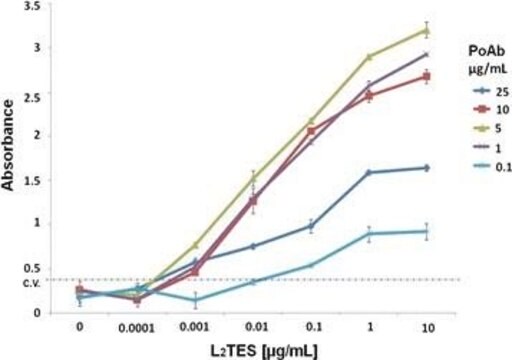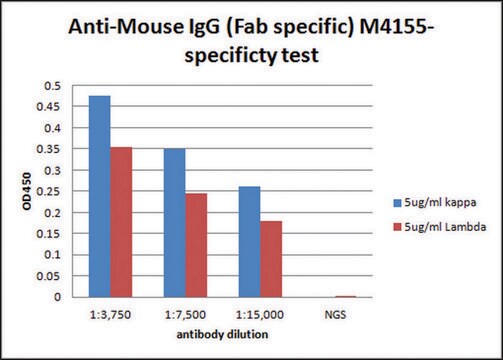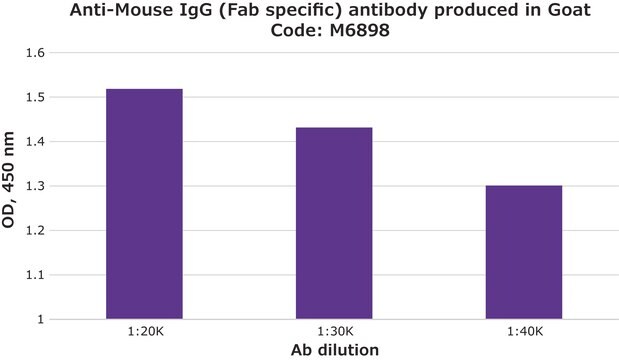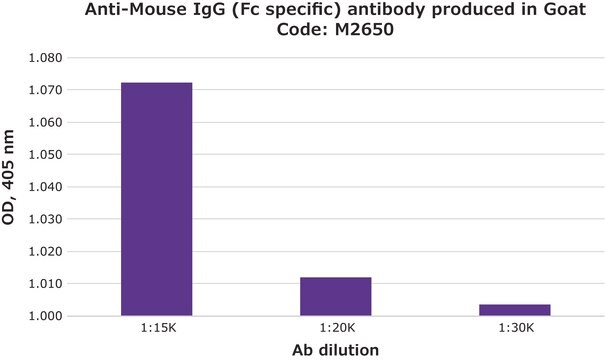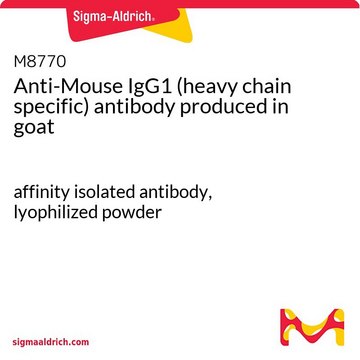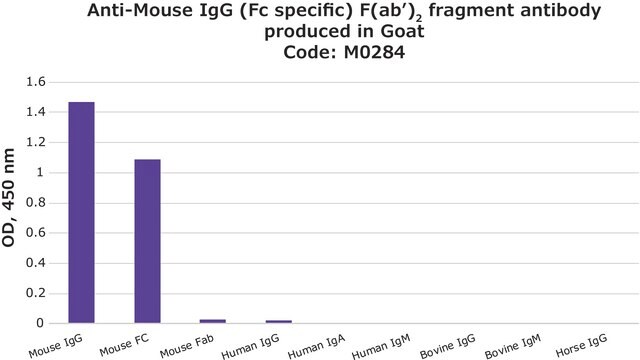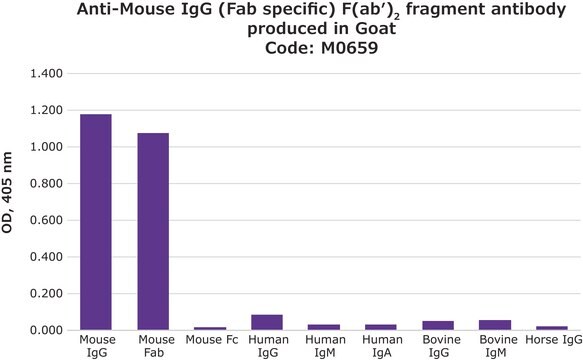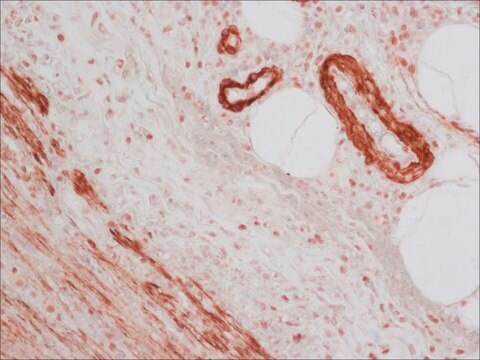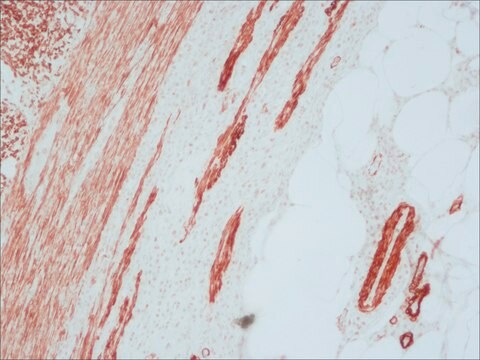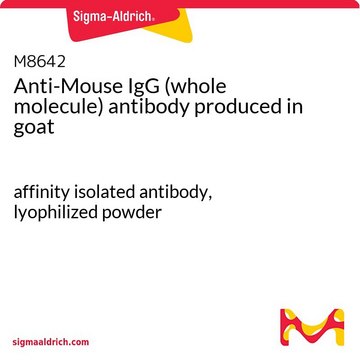M4280
Anti-Mouse IgG (Fc specific) antibody produced in goat
2.0 mg/mL, affinity isolated antibody
Sinónimos:
Anti Mouse Fc Antibody, Anti Mouse Fc Antibody - Anti-Mouse IgG (Fc specific) antibody produced in goat
About This Item
Productos recomendados
biological source
goat
conjugate
unconjugated
antibody form
affinity isolated antibody
antibody product type
secondary antibodies
clone
polyclonal
concentration
2.0 mg/mL
technique(s)
indirect ELISA: 1:20,000
shipped in
dry ice
storage temp.
−20°C
target post-translational modification
unmodified
¿Está buscando productos similares? Visita Guía de comparación de productos
General description
Immunogen
Application
- enzyme-linked immunosorbent assay (ELISA)
- flow cytometry
- immunoprecipitation
- immunoblotting
Biochem/physiol Actions
Other Notes
Physical form
Preparation Note
Disclaimer
¿No encuentra el producto adecuado?
Pruebe nuestro Herramienta de selección de productos.
Storage Class
12 - Non Combustible Liquids
wgk_germany
nwg
flash_point_f
Not applicable
flash_point_c
Not applicable
Elija entre una de las versiones más recientes:
¿Ya tiene este producto?
Encuentre la documentación para los productos que ha comprado recientemente en la Biblioteca de documentos.
Los clientes también vieron
Nuestro equipo de científicos tiene experiencia en todas las áreas de investigación: Ciencias de la vida, Ciencia de los materiales, Síntesis química, Cromatografía, Analítica y muchas otras.
Póngase en contacto con el Servicio técnico

